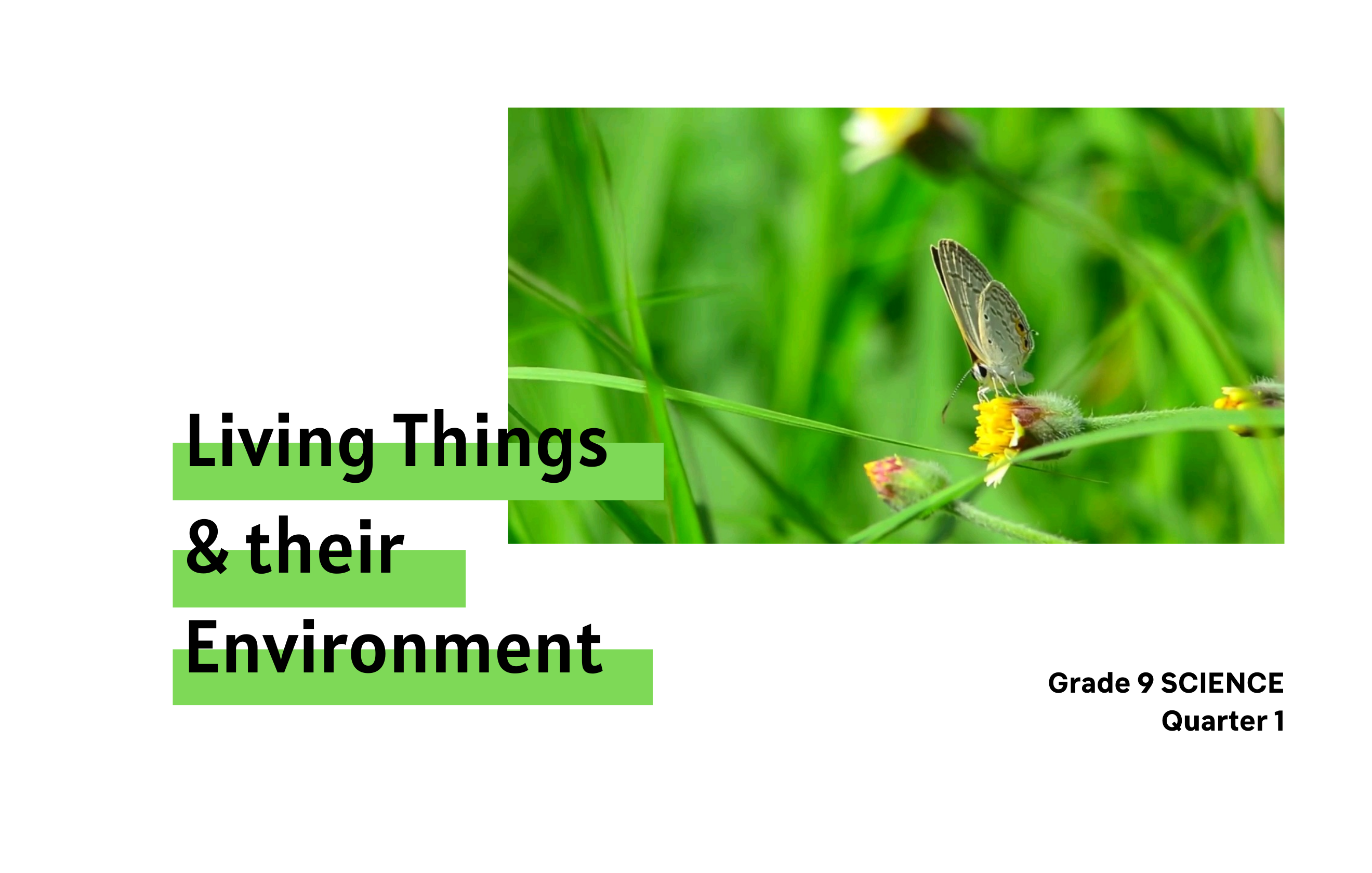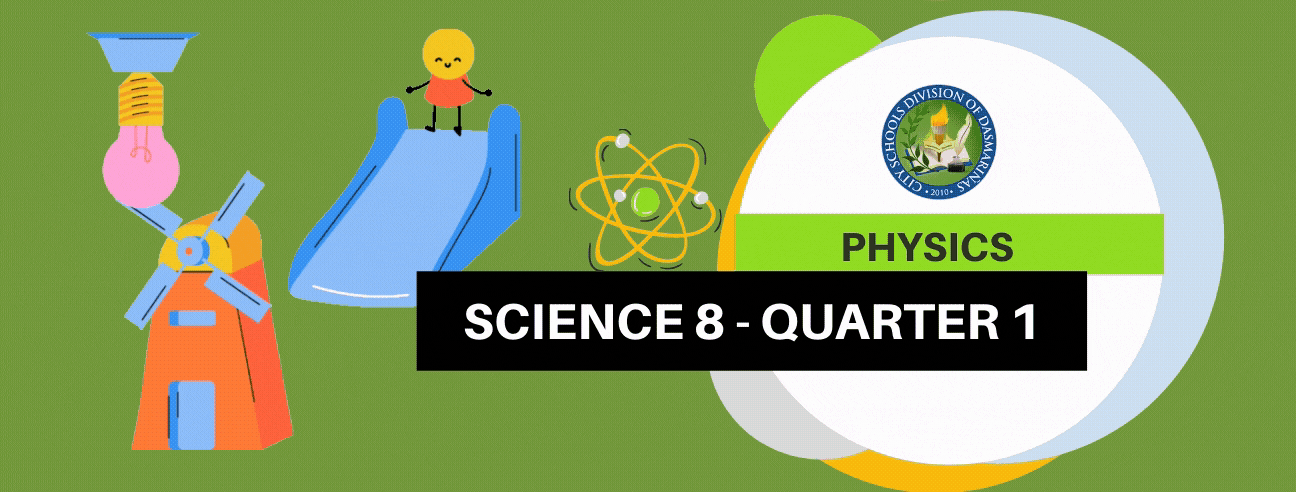
G9 Science Quarter 1 - Living Things and their Environment copy 6
G9Sci-Q1 - Living Things and their Environment is divided into four learning modules aiming to help you understand how different life processes and activities can affect humans and other organisms.
This unit will focus on the following concepts:
Module 1 - Respiratory and Circulatory System Working Together with Other Organ Systems
Module 2 - Heredity : Inheritance and Variation
Module 3 - Biodiversity and Evolution
Module 4 - Ecosystem: Life Energy

G8 - Science Quarter 1 copy 6
Course Description
On this course, you will deepen your understanding of the different forms of energy by explaining how the transferred energy affects objects or is influenced by them. The course is composed of six modules. The first two modules address the effects of energy at macroscopic level while the next four modules tackle these effects at the microscopic level. Most of the modules of this course are dealt qualitatively to give you a clear understanding of the concepts. Some tasks include measurements and calculations to demonstrate the relation among quantities. Below are the modules of this course:
Module 1. Newton’s Laws of Motion
Module 2. Work, Energy and Power
Module 3. Sound
Module 4. Light
Module 5. Heat and Temperature
Module 6. Electricity

G7 - Science Quarter 1 copy 6
COURSE DESCRIPTION
Hello students! Welcome to our course on “Diversity of Materials in the Environment”
In this course, you will investigate properties of solutions that are homogeneous mixtures. You will learn how to express concentrations of solutions qualitatively and quantitatively. You will distinguish mixtures from substances based on a set of properties. You will begin to do guided and semi-guided investigations, making sure that the experiment you are conducting is a fair test.
This course is composed of 5 modules:
Module 1. Ways of Acquiring knowledge and Problem Solving
Module 2. Element and Compound
Module 3. Substances and Mixtures
Module 4. Solutions
Module 5. Concentration of Solutions
